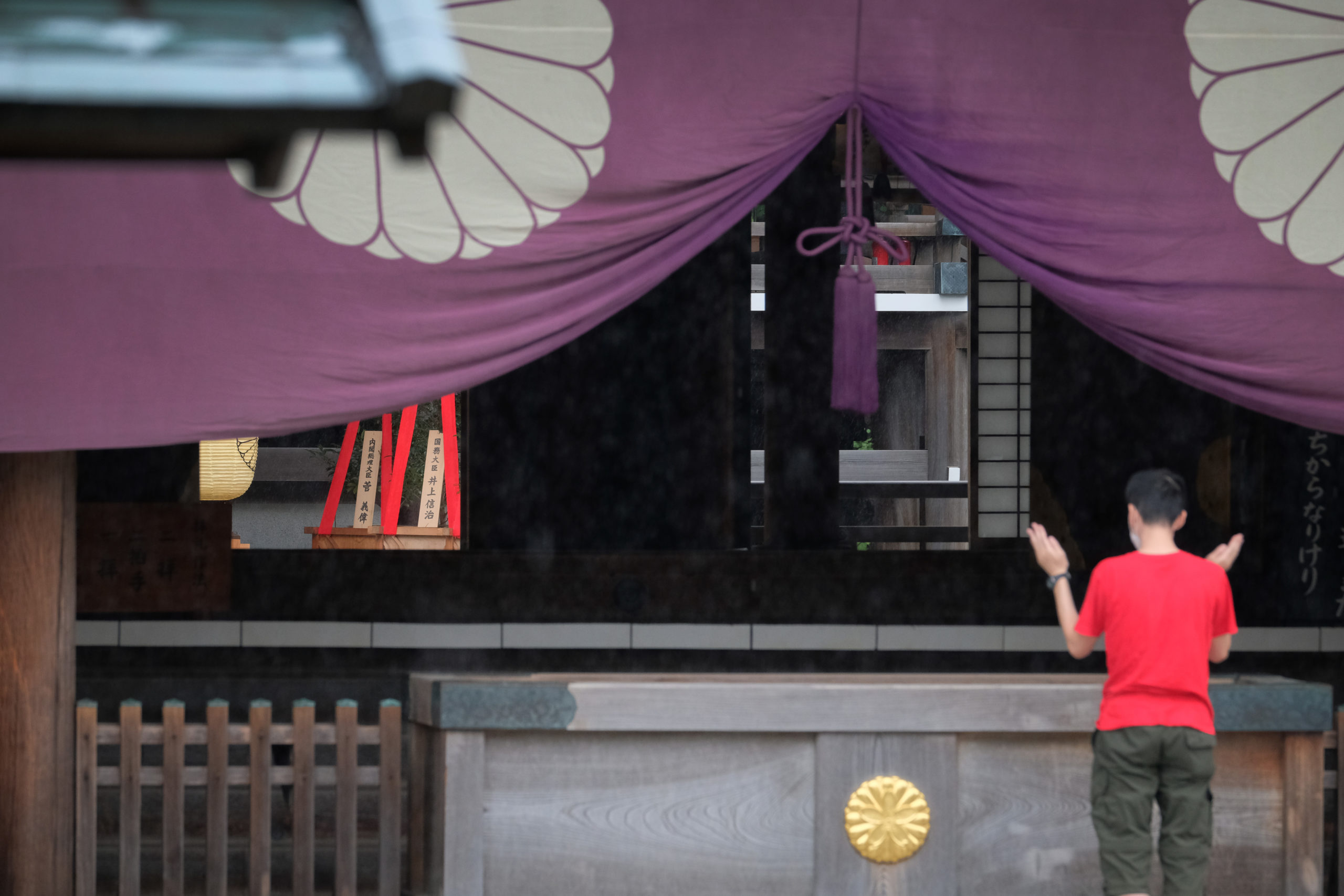
A wooden plaque (at L in left background) showing the name of Japanese Prime Minister Yoshihide Suga is seen with a “masakaki” tree that he sent as an offering to the controversial Yasukuni Shrine in Tokyo on October 17, 2020. (Photo by Kazuhiro NOGI / AFP)
TOKYO — Japanese Prime Minister Yoshihide Suga sent a ritual offering Saturday to the controversial Yasukuni war shrine, which is seen by neighboring countries as a symbol of the nation’s past militarism, especially during World War II.
Yasukuni honors some 2.5 million war dead, mostly Japanese, who perished in the country’s wars since the late 19th century.
But it also honors senior military and political figures convicted of war crimes by an international tribunal after WWII.
The prime minister sent a sacred “masakaki” tree in the name of the prime minister at the start of an annual autumn festival, a shrine spokeswoman said.
Suga, who took office last month, followed a rite conducted by his nationalist predecessor Shinzo Abe, who also sent ritual offerings to the shrine in recent years.
But Suga is not expected to make a pilgrimage during the two-day biannual event, local media reported, as he will start a four-day trip to Vietnam and Indonesia on Sunday, his first overseas visit as premier.
Visits to the shrine by government officials have angered countries that suffered at the hands of the Japanese military during World War II, particularly South Korea and China.
“We express deep regret over the offering by the Japanese government,” said the South Korean foreign ministry in a Saturday statement.
The shrine “glorifies Japan’s past aggressions and enshrines war criminals,” the statement read.
A 2013 visit to the shrine by Abe sparked a similar outcry from South Korea and wartime foe China, as well as a rare diplomatic rebuke from close ally the United States.
Since then, Abe refrained from paying tributes at the shrine in person but other conservative politicians continued, in particular on August 15 to mark Japan’s WWII surrender.
Abe visited Yasukuni days after he resigned in September.